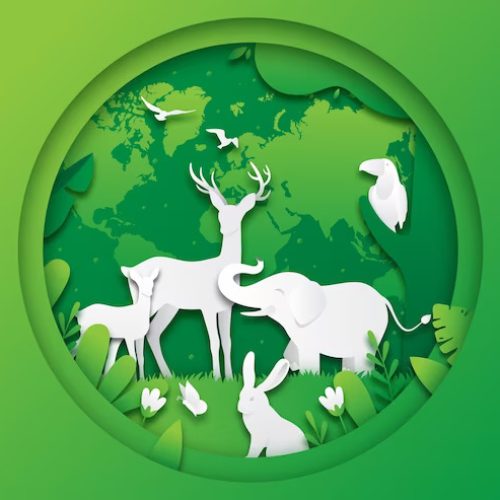- (+91) 7399001009
- support@careertoday.info
Wildlife Conservation

Introduction
Professionals in this field wear multiple hats irrespective of their credentials- scientist, researcher, writer, advocate and activist, to name a few…
Working for wildlife
The field has witnessed a shift from authority-led to community-oriented conservation, and several government agencies and NGOs are working at various levels, with varying approaches to protect natural habitat and wildlife. This is because tackling the challenges of wildlife requires different combinations of expertise.
Master’s in Wildlife Conservation
Life Sciences provide a knowledge base to understand wildlife, while veterinary and environment science help in its conservation. A UG degree in Zoology, Botany, Forestry, Environment or Veterinary Science could be the first step after studying Science and Maths at 10+2. Geographic Information Systems, Remote Sensing and Statistics are getting increasingly important in advance methods of animal monitoring and census. The Wildlife Institute of India (WIL) and National Centre of Biological Sciences (NCBS) in Dehradun are two premier institutes that offer Master’s level programmes in Wildlife Conservation. Such programmes integrate scientific disciplines like landscape ecology, remote sensing and conservation genetics.
At, NCBS, an MSc in Wildlife Biology and Conservation Programme is offered in collaboration with Centre for Wildlife Studies (CWS), Bangalore and the degree is awarded by Tata Institute of Fundamental Research, Mumbai. Bangalore based institutes like Ashoka Trust for Research in Ecology and the Environment, Nature Conservation Foundation and National Institute of Advanced Studies, also make significant academic contributions to the course.
Eligibility and Admission
At NCBS, selection is through national level written test and interview. Reflecting the multidisciplinary nature of conservation, selection of students from a wide range of academic backgrounds is encouraged. Candidates who have completed their Bachelor’s degree in any subject or are in the final year of graduation with an aggregate of at least 50 percent marks in core subjects, are eligible to apply. However at WIL, the eligibility criterion is either a BSc with Biological Science as a major subject or Bachelor’s in Veterinary, Forestry, Agriculture and Environmental Science with a minimum aggregate of 55 % marks.
Job Function and Domains
There are various models of entry in a career in Wildlife Conservation. We categories them into five routesHowever at WIL, the eligibility criterion is either a BSc with Biological Science as a major subject or Bachelor’s in Veterinary, Forestry, Agriculture and Environmental Science with a minimum aggregate of 55 % marks.
1. Wildlife journalism and Tourism
This area attracts maximum number of wildlife enthusiasts who do wildlife journalism, nature photography or make documentaries. Apart from media skills, this area demands knowledge and zeal to explore wildlife. Like media, wildlife tourism also gives opportunity to many nature lovers to combine their passion with their profession.
2. Corporate Social Responsibility (CSR)/NGOs:
From research on endangered species to creating awareness in hunting communities, NGOs are playing various roles in wildlife conservation. NGOs require researchers, campaigners, outreach workers, media persons and experts for anti- poaching and intelligence networks. They have recruited some people from local poaching communities to use their expertise against poachers. After completing a Master’s or PhD in Wildlife Sciences, candidates can start working with NGOs as field researchers.
3. Research Focus
Many government and Non- Government Organizations like WIL, NCBS, ATREE and NCF are engaged with scientific research related to wildlife. After a postgraduate degree in Wildlife Science, researchers get an opportunity in such institutes to pursue a PhD or join as wildlife biologists or research associates.
4. Government Services
Central and state government recruit officers in forest services to manage national parks, tiger reserves and other protected areas. They are later trained in different fields like forestry, wildlife and land management. Any graduate can join these services and develop his/her expertise in wildlife.
5. Environmental Law
An emerging area, one can combine one’s passion for wildlife and knowledge of law to protect the environment. To practice in courts one must acquire a degree in Law. There is a lot of scope in this domain as countries become more environment conscious in keeping with the sensitivities related to environment issues like sharing of water resources.
Personal Attributes
Conservation scientists or campaigners should understand relevant social, environmental and economic issues that impact wildlife. They have to possess good communication and problem solving skills to be effective conservation leaders. At the same time, their core competence in Wildlife Sciences and their commitment to save wildlife, must not be compromised.
Need guidance on career and education? Ask our experts
